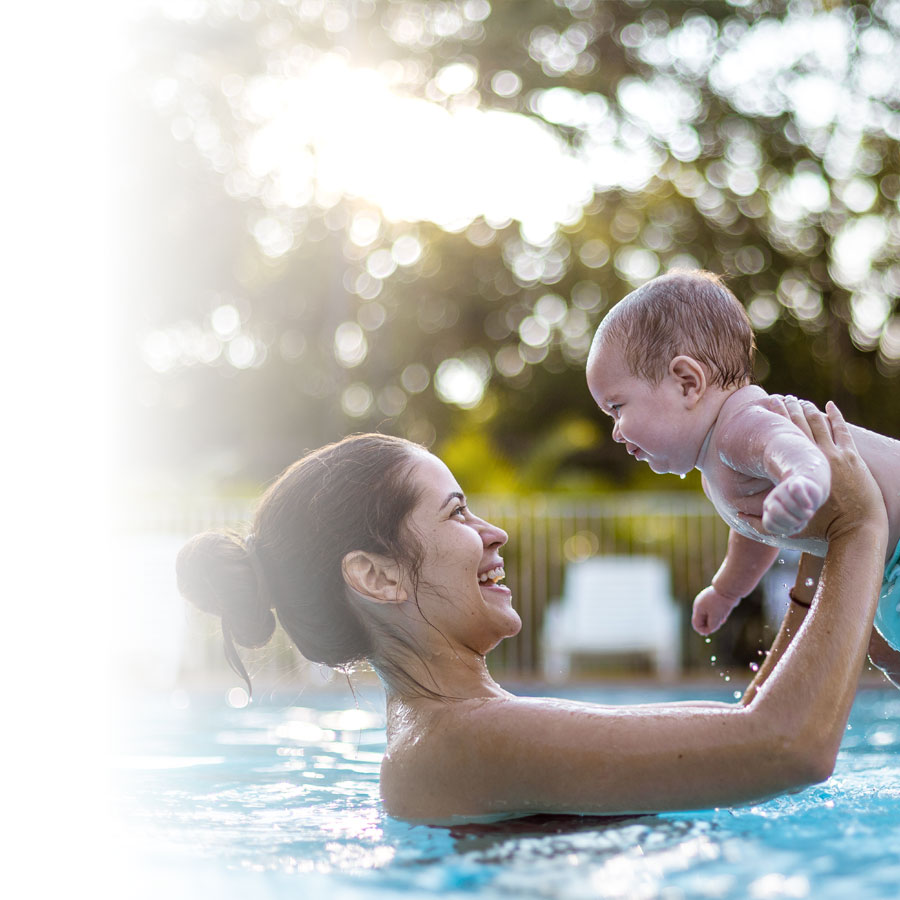Extreme heat can be a health risk for vulnerable people, such as the elderly and babies. Find out how to get through them without worrying.
What is meant by extreme heat?
Ah, summer! The beauty of parks and gardens, the singing of birds and, of course, the warmth of the sun help us to reenergize before the return of Old Man Winter. Heat is usually revitalizing, but it can become overwhelming when the thermometer spikes and the humidity sets in.
When weather forecasts call for temperatures of at least 30°C and a humidex (combination of temperature and humidity in a single measure to reflect the perceived temperature) of 40°C or higher, Environment Canada issues an extreme heat advisory. This is known as extreme heat, which poses health hazards, especially to babies and the elderly.
The effects of extreme heat
Due to global warming, periods of extreme heat are becoming more frequent, longer lasting, and more intense. Extreme heat increases the risk of dehydration. In addition to symptoms such as dry mouth, low blood pressure, and muscle cramps, dehydration from overexposure to extreme heat can lead to heatstroke.
Heatstroke occurs when the body overheats and fails to cool down. This condition can cause fever, headache, dizziness, loss of consciousness, and in the worst cases, death. Heatstroke is a medical emergency that requires immediate medical attention. For additional information, read the following texts: Heatstroke: how to prevent and treat it and Becoming dehydrated in summer is risky!
Extreme heat also predisposes people to other health problems, including:
- heat oedema (swelling)
- heat rash
- heat cramps
- heat exhaustion
Risks for the elderly
The elderly are generally more vulnerable to the effects of extreme heat, especially if they:
- are taking certain medications or have conditions that reduce their tolerance to heat
- experience physical and social isolation
- have a loss of autonomy
Various medications can interfere with the body’s thermoregulation mechanisms, predisposing a person to heat-related conditions. Don’t hesitate to speak to your pharmacist to find out if your medication may have such an effect.
Some medical conditions increase the risk of heatstroke or other heat-related illnesses. Additionally, extreme heat can worsen various chronic conditions. Thus, it is important to be extra careful if you have any of the following conditions:
- cardiovascular disease (e.g., heart failure)
- lung disease (e.g., emphysema, asthma)
- kidney disease or failure
- neurological diseases
- high blood pressure
- diabetes
Some advice for the elderly
- Drink more water than usual.
- Avoid outdoor activities during heat waves. Why take unnecessary risks?
- Limit your intake of tea, coffee, and alcohol to avoid dehydration. If you can’t do without them, drink more water.
- Get some rest.
- If possible, stay in an air-conditioned room.
Air-conditioning: useful in periods of extreme heat
In addition to contributing to our comfort, air-conditioning is one of the most effective means of protection against heat-related illnesses. However, it is crucial to use and maintain your air-conditioner properly. If it is set too cold or not kept clean, it can cause infections, increase allergy symptoms, and worsen respiratory diseases like asthma. The following text: Air-conditioning and its effects on health, provides detailed information on the subject.
How to protect babies
Because their metabolism is different, babies are particularly sensitive to heat. Vigilance is key during hot weather and the following tips will help you take good care of your little one:
- Keep your baby in diapers at home. They will perspire less and have less hydric loss to make up for.
- Have your baby drink regularly.
- Place a fan in baby’s bedroom.
- Give your baby a bath two or three times a day to cool them down.
- If you go outside, cover your baby’s head and limit exposure to extreme heat as much as possible.
Remember that your pharmacist is there to answer any health-related questions you may have.

